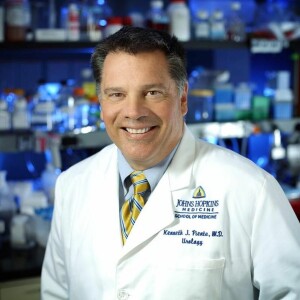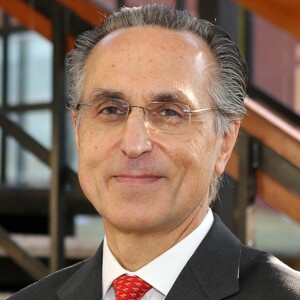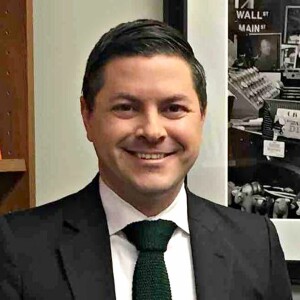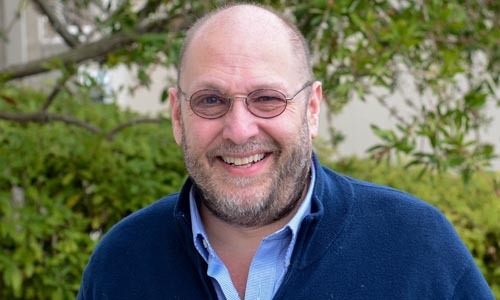Episodes

Thursday Jan 18, 2018
How Surveillance and Data Are Bringing Precision to the Treatment of Prostate Cancer
Thursday Jan 18, 2018
Thursday Jan 18, 2018
The development of a biomarker to identify people with prostate cancer increased the diagnosis of the disease, but did little to suggest the appropriate course of treatment for individual patients. Kenneth Pienta, professor of urology and co-director of the Johns Hopkins University InHealth Signature Initiative, is trying to change that by using surveillance and extensive data gathering to continuously stratify patients and refine treatment approaches. Pienta, who will be speaking at the Precision Medicine World Conference in Mountain View, California January 22 to 24, discussed InHealth, how its transforming the treatment of prostate cancer patients, and why it may be a model for applying precision medicine approaches to a broad range of diseases.

Thursday Jan 11, 2018
Why Life Sciences M&A Should Heat up This Year
Thursday Jan 11, 2018
Thursday Jan 11, 2018
A surge in merger and acquisition activity in the life sciences is expected this year, according to a new report from EY. The company annual M&A Firepower Report says increased competition, new sources of capital, and the change in U.S. corporate tax laws will drive greater dealmaking in the sector. We spoke to Jeff Greene, EY global life sciences transaction advisory services leader, about the report, the drivers of the activity, and why nontraditional players in the sector may be in a better position to make a splash in 2018.

Thursday Jan 04, 2018
The Outlook for Biotech in 2018
Thursday Jan 04, 2018
Thursday Jan 04, 2018
We conclude our biotech review-preview series with our final installment this week as we take a look at the year ahead as the industry readies for the JPMorgan Healthcare Conference. We spoke to Jon Gardner, U.S. News Editor for EP Vantage, about the EP Vantage 2018 Preview(http://bit.ly/2CT2RDP), the outlook for big-value drug launches, and whether dealmaking or clinical success will drive stock prices in 2018. As a note, this podcast was recorded prior to Spark Therapeutics announcement of its pricing for its gene therapy Luxturna.

Thursday Dec 28, 2017
The Year in Biotech and What to Watch in 2018
Thursday Dec 28, 2017
Thursday Dec 28, 2017
In the second installment of our three-part review-preview series of podcasts, we continue an annual tradition by sitting down with Adam Feuerstein, senior biotech writer for STAT, to discuss the year that was in biotech and what to look for in 2018. We talked to Feuerstein about the themes that emerged in 2017, his annual best and worst biotech CEOs, and what he’ll be watching at JPMorgan and beyond.

Thursday Dec 21, 2017
The Year in Immuno-Oncology and What to Watch in 2018
Thursday Dec 21, 2017
Thursday Dec 21, 2017
It’s that time of year when we begin to look back and think ahead. Starting with this week’s interview, we begin a three-part review-preview series to discuss the year in biotech and what to look for in 2018. In 2017, there were exciting developments in the area of immune-oncology with the approval of the first Car-T therapies and Gilead’s acquisition of Kite Pharma. As the year approached the finish line, investors got to view data from a range of studies at the American Society of Hematology meeting in Atlanta, setting the stage for 2018 when data from studies looking at combinations of immunotherapies will be closely watched. We spoke to Brad Loncar, CEO of Loncar investments, about the state of immunotherapies, what caught his attention at the ASH meeting, and what he’ll be watching in 2018.

Thursday Dec 14, 2017
What the Approval of the First Digital Pill Means for the Future of Healthcare
Thursday Dec 14, 2017
Thursday Dec 14, 2017
Last month Otsuka Pharmaceutical and Proteus Digital Health won U.S. Food and Drug Administration approval for what’s being hailed as the first digital pill. Abilify Mycite, a drug-device combination that marries Otsuka’s Abilify, used to treat schizophrenia, with Proteus’ ingestible sensor, wearable sensor, and smartphone app intended to monitor and improve compliance. We spoke to George Savage, chief medical officer of Proteus, about the technology, other potential uses, and how it may help address the quality and cost of healthcare.

Thursday Dec 07, 2017
Why Public Health Systems Need to Be Better Prepared for Extreme Weather Events
Thursday Dec 07, 2017
Thursday Dec 07, 2017
Climate change and the increasing frequency and intensity of extreme weather events carry a toll on human health. Not only do floods, hurricanes, and other similar phenomenon cause death and injury, they also create long-term health effects. Jesse Bell, a research scientist at the North Carolina Institute for Climate Studies at North Carolina State University recently examined the issues in an article in the Journal of the Air & Waste Management Association. We spoke to Bell about the health consequences of these weather events, the challenges they create for public health systems to plan and prepare, and why new research is needed to better understand the relationship between these events and human health.

Thursday Nov 30, 2017
Former CDC Director Takes on World’s Leading Cause of Death
Thursday Nov 30, 2017
Thursday Nov 30, 2017
Tom Frieden, after eights years of running the U.S. Centers for Disease Control and Prevention, is turning his sights to global health. Frieden has set a goal of saving 100 million lives from cardiovascular disease in low- and middle-income countries by applying proven strategies used in developed countries. His program Resolve to Save Lives, an initiative of Vital Strategies, will also work to prevent infectious disease epidemics and pandemics by strengthening public health systems in these nations. We spoke to Frieden about the initiative, whether strategies that worked in the developed world can be translated to low- and middle-income countries, and what it will take to be successful.

Daniel Levine
Daniel Levine is an award-winning business journalist who has reported on the life sciences, economic development, and business policy issues throughout his career. He is founder and principal of Levine Media Group, host of The Bio Report and RARECast podcasts, a senior fellow at the Center for Medicine in the Public Interest, and author of Global Genes’ annual NEXT report on emerging trends in the world of rare disease. From 2011 to 2014, he served as the lead editor and writer of Burrill & Company’s acclaimed annual book on the biotech industry. His work has appeared in numerous national publications including The New York Times, The Industry Standard, and TheStreet.com.

